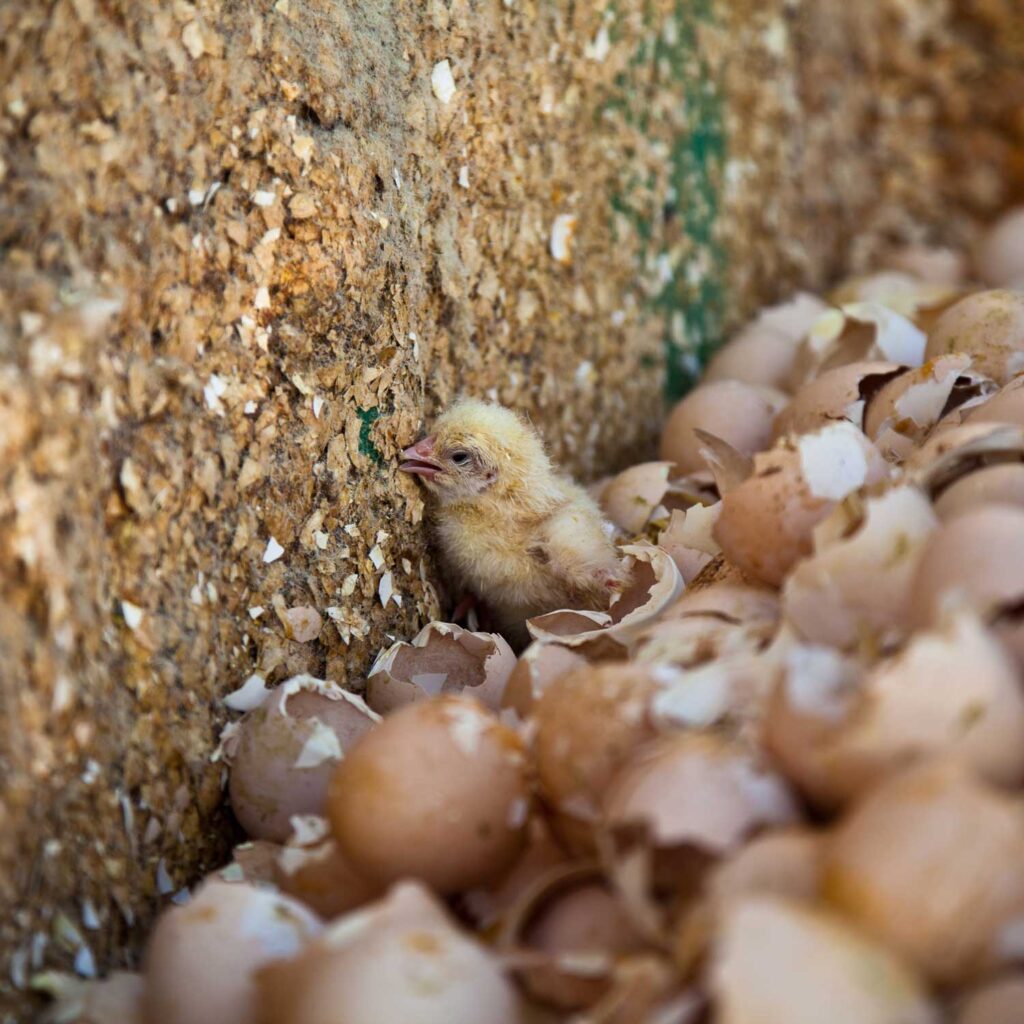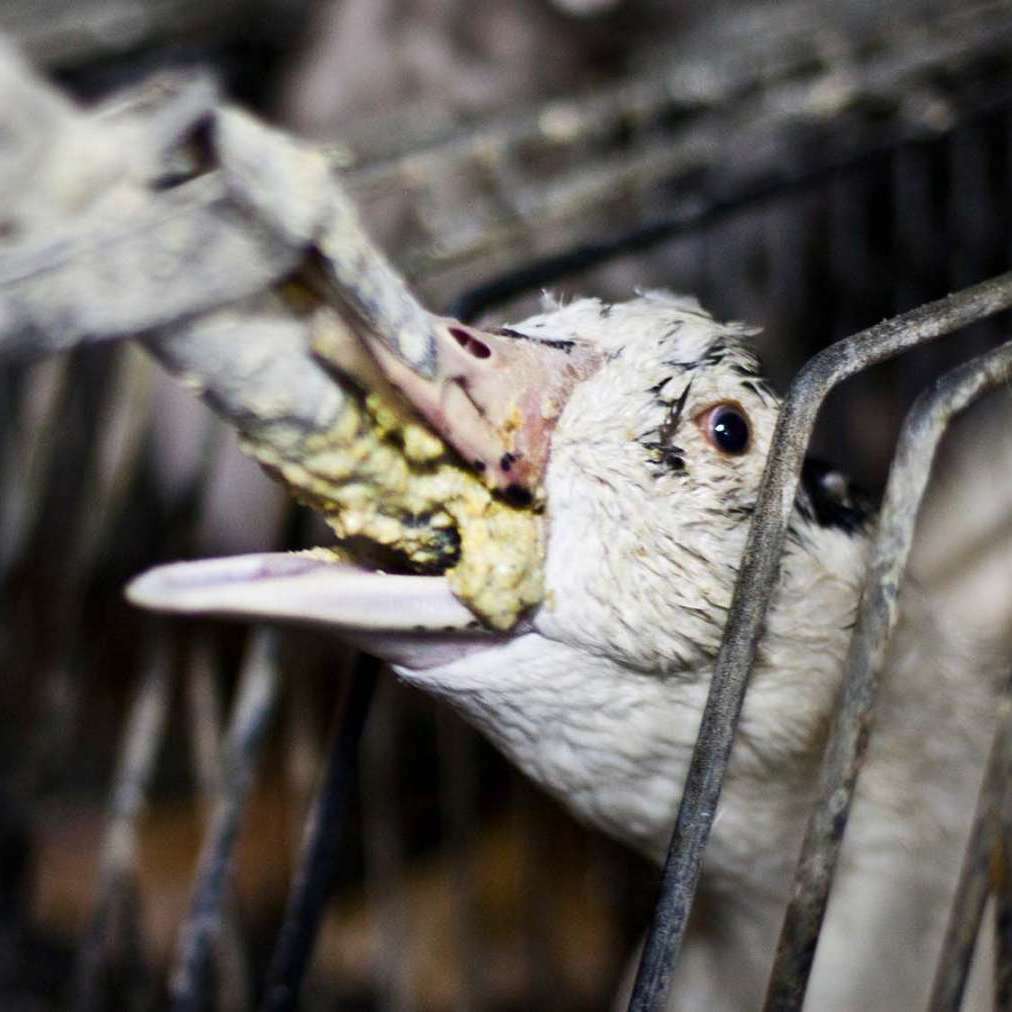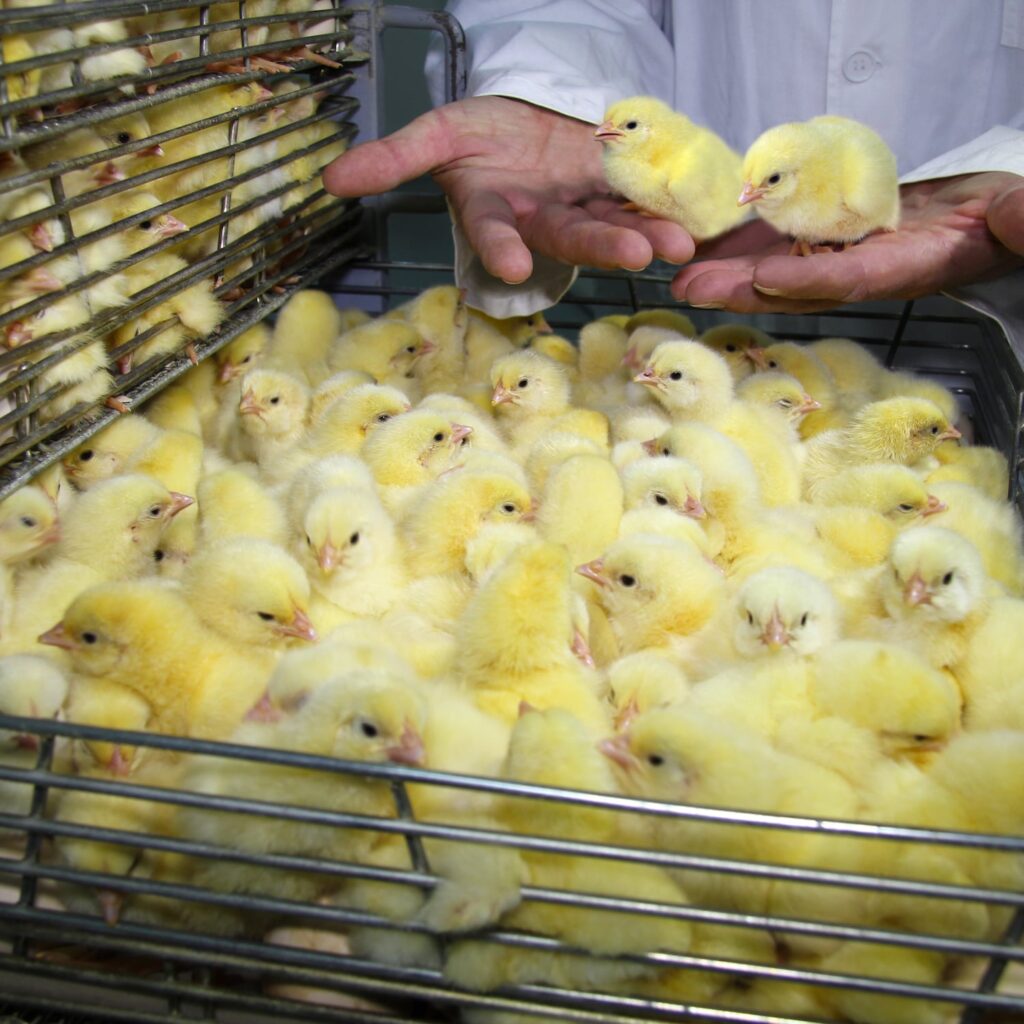- Brazil is moving forward with laws to end the killing of male chicks in the egg industry.
- Animal Equality has filed two bills to stop chick killing–one at the federal level and one in the state of São Paulo.
- Male chicks, unable to lay eggs or grow fast enough for meat, are routinely killed by the egg industry.
- In-ovo sexing technology identifies the sex of embryos before hatching, preventing the birth of male chicks.
- The killing of male chicks is widespread in both Brazil and the U.S., even in “cage-free” or “free-range” egg production.
Update October 2024 – Brazil’s Environment and Sustainable Development Committee approved a bill to stop the killing of male chicks. Introduced by Congresswoman Luciene Cavalcante at Animal Equality’s request, the bill proposes using in-ovo sexing technology, which could save 84 million chicks each year. It now awaits approval from three more committees before moving to the Senate.
Update June 2024 – Animal Equality held a public hearing at São Paulo’s State Assembly to discuss the killing of male chicks in the egg industry and male calves in the dairy industry. Led by State Deputy Carlos Giannazi, the hearing focused on in-ovo sexing technology. Animal Equality released a report urging lawmakers and companies to adopt this solution.

Update March 2024 – Animal Equality–along with Congresswoman Luciene Cavalcante and other groups–introduced two bills in Brazil’s Congress. One would ban killing male chicks by requiring in-ovo sexing technology. The other would mandate clear labels on animal products to inform consumers about cruel practices like caging and mutilation.
Update June 2023 – Animal Equality joined State Deputy Carlos Giannazi for a public hearing in São Paulo’s State Assembly to discuss four animal protection bills. These bills would stop the export of live animals from São Paulo by ship, protect male calves and chicks from being killed, and require clearer labeling on animal products about cruelty during production.

Update November 2022 – Animal Equality co-authored a bill introduced by São Paulo State Deputy Carlos Giannazi, which would require food companies to label products if animals were harmed during production. This includes practices like extreme confinement or the killing of male chicks.
Update March 2022 – Carla Lettieri–Animal Equality’s Executive Director in Brazil–met with presidential candidate Luiz Ignacio Lula da Silva in São Paulo. She talked about the need to enforce Brazil’s existing animal protection laws. Lula showed interest and praised animal advocates’ work.
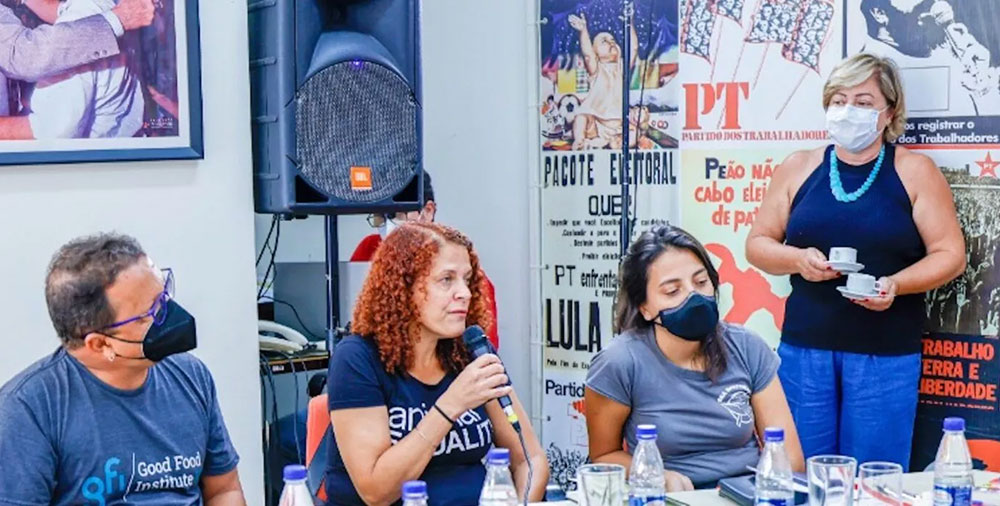
Update May 2021 – Animal Equality–in collaboration with other groups–introduced a bill in the State of São Paulo to ban male chick killing. The bill would prohibit crushing, suffocating, and electrocution while requiring in-ovo sexing technology. Egg producers would have one year to comply, with fines or loss of licenses for violations.
Animal Equality takes on male chick killing in Brazil
In February 2021, Animal Equality launched a campaign in São Paulo–Brazil’s largest egg-producing state–to stop the killing of male chicks. The campaign advocated for the use of in-ovo sexing technology, which could prevent millions of male chicks from being killed. Animal Equality’s report outlined the effectiveness of this solution and urged lawmakers to adopt it quickly–as other countries have already done.
Why are male chicks killed in the egg industry?
Each year, over 84 million male chicks in Brazil are killed shortly after hatching. Since they don’t lay eggs or grow fast enough for meat, they are considered unprofitable to the egg industry. They are typically killed through grinding or suffocation–often while fully conscious.
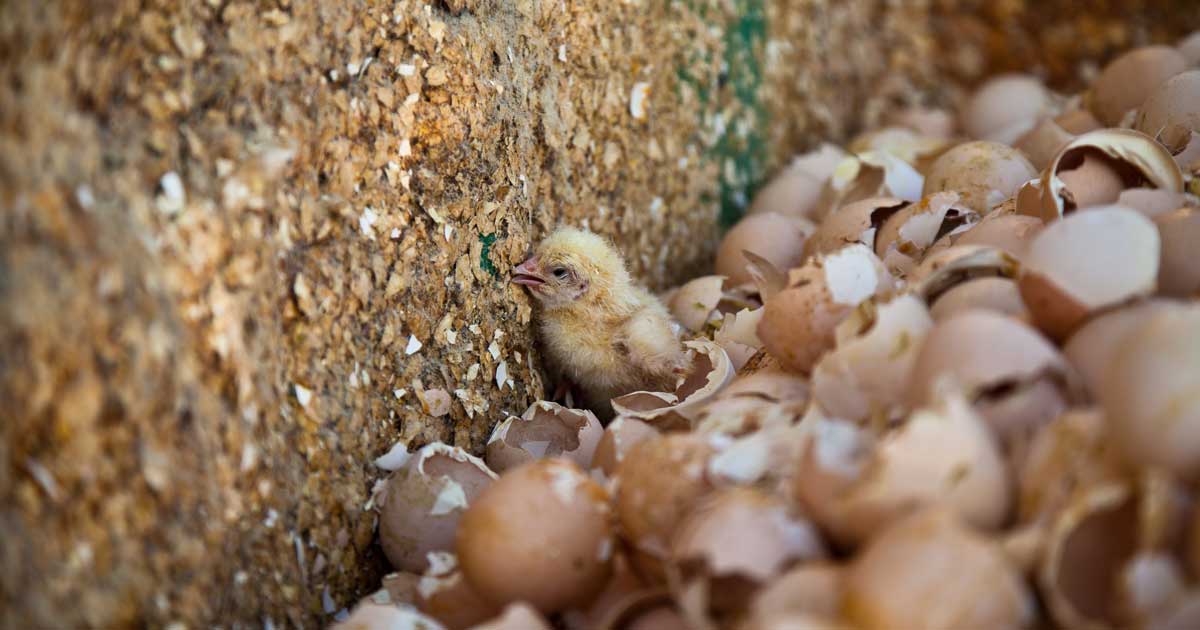
What is in-ovo sexing technology?
In-ovo sexing identifies the sex of a chick before it hatches. This allows producers to stop the development of male chicks, preventing their needless killing.
Are male chicks killed in the United States?
Yes, male chick killing is also common in the U.S. Despite the availability of in-ovo sexing technology, nearly all U.S. egg producers still kill male chicks. Even eggs labeled “free-range” or “cage-free” often involve this practice, which remains legal in all 50 states.
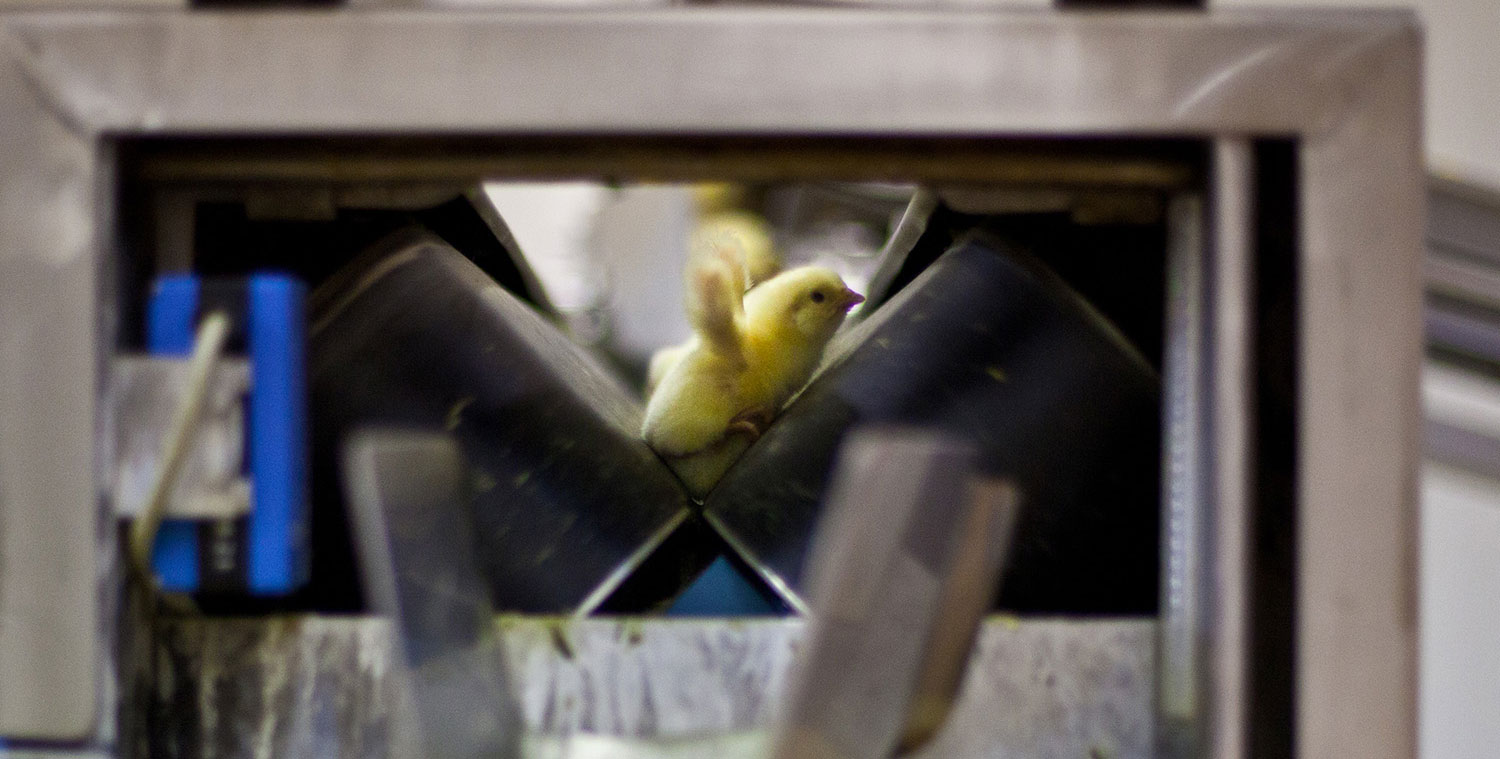
Take action: Help end male chick killing
Animal Equality and global advocates are showing they have the power to protect animals. Recently, the Italian Chamber of Deputies passed a ban on killing male chicks in the egg industry after two years of campaigning. The law–set for 2026–will save millions of chicks from being killed.
Now, advocates are working to bring similar change to the U.S.
Animal Equality has launched a petition to end the killing of male chicks in the U.S. egg industry. By signing, you can help protect billions of animals.
Billions of baby birds face death on the day they are born simply because their lives are not profitable. Please sign the petition to end this massacre.
What is the best way to protect animals?
Choosing plant-based alternatives is one of the most effective ways to protect animals. By switching from meat, dairy, and eggs to plant-based options, you can help reduce the demand that drives cruel practices like male chick killing.
Ready to make a change? Subscribe to Love Veg and get a free starter cookbook filled with delicious, egg-free recipes. It’s an easy and tasty way to make a difference—one meal at a time.
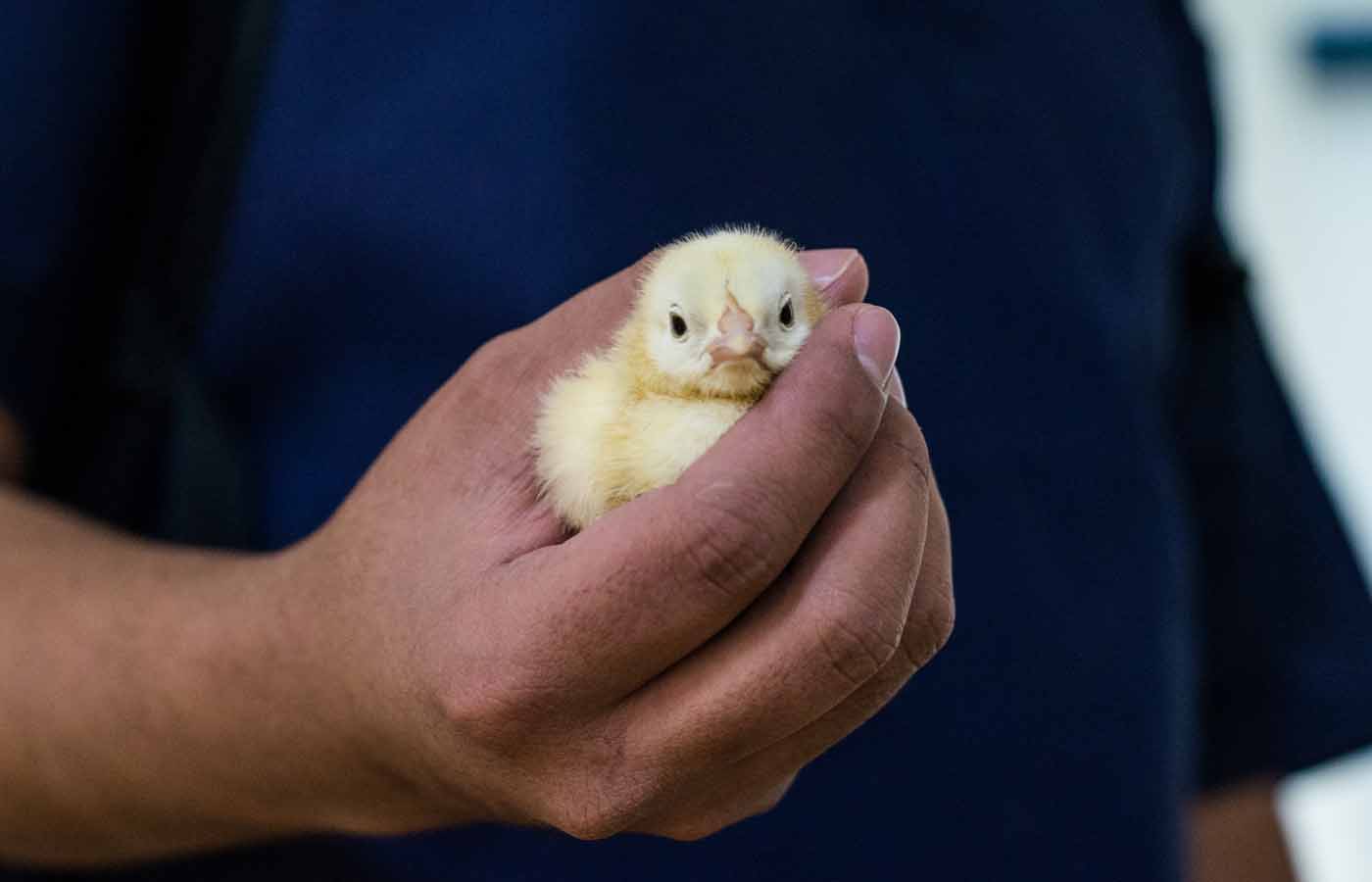
PROTECT THE MOST VULNERABLE
A curious chick recognizes his mother’s voice and imprints on her immediately after hatching.
You can defend these family bonds by choosing plant‑based alternatives to eggs.

